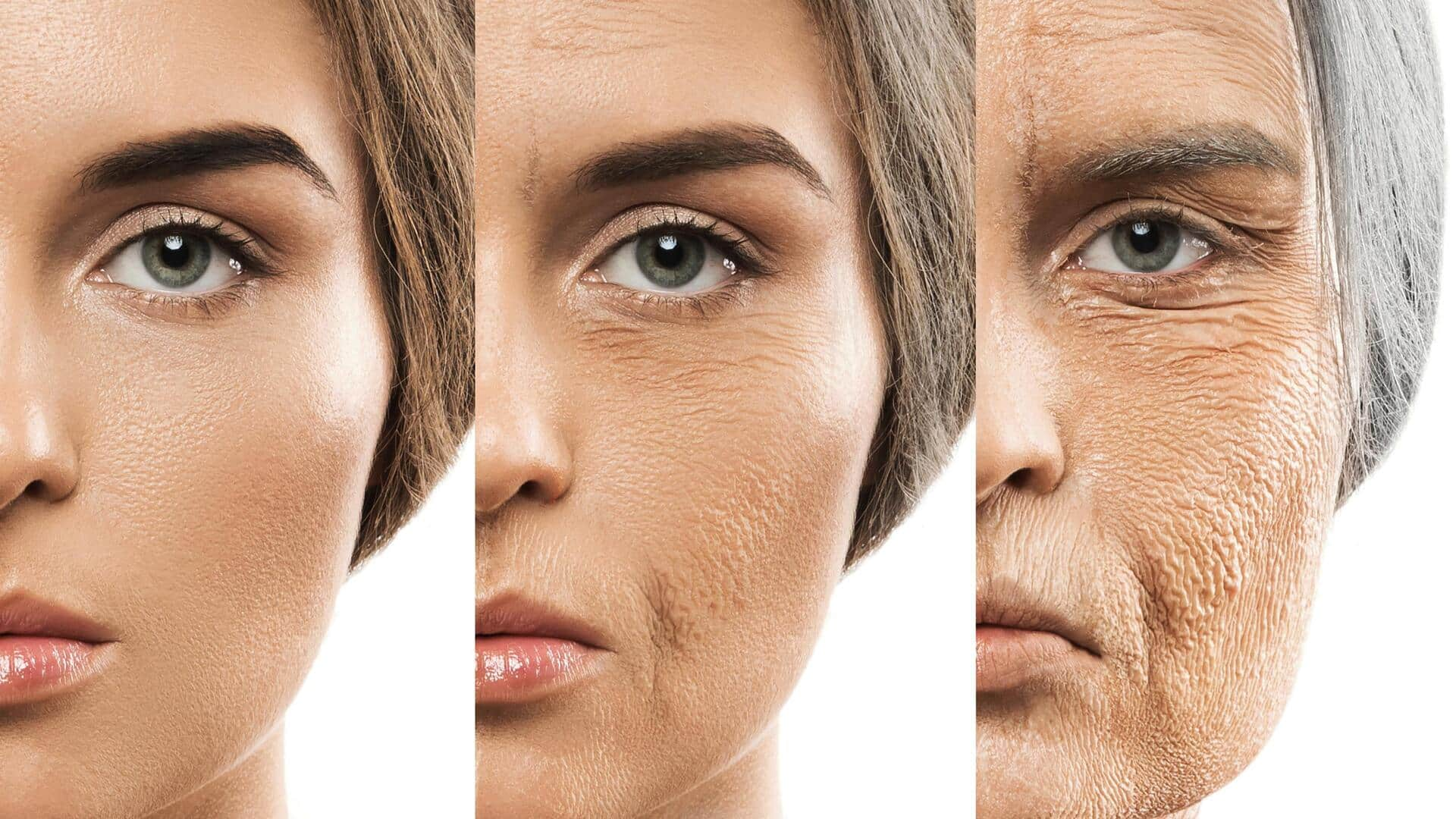
Age-o-types: How your biological age differs from your chronological age
What's the story
Age is often described as "just a number," but recent scientific research has provided concrete evidence to support this saying.
A groundbreaking study conducted at Stanford University School of Medicine challenges the conventional understanding of age.
This study, led by the prominent researcher Michael Snyder, delves into the concept of biological age and introduces the intriguing notion of "age-o-types."
Biological age
Deciphering biological age
Before we delve into the study's findings, it's essential to distinguish between biological age and the concept of "age-o-types."
This study was published in a renowned journal, shedding new light on the idea of biological age.
Snyder and his team's research uncovered that biological age is not a uniform measure across the body; instead, it varies from one organ to another.
Age-o-Types
Unveiling age-o-types
The study introduces the fascinating concept of "age-o-types," which are distinct categories used to classify how various body parts age at different rates.
These age-o-types help us comprehend the intricate and multifaceted nature of biological aging.
Through an examination of 43 healthy individuals, aged between 34 to 68, the research team collected various samples, including feces, blood, genetic material, microbes, proteins, and metabolic byproducts.
Age-o-Types
Identification of four age-o-types
Lead researcher Michael Snyder and his team identified four distinct age-o-types: metabolic, immune, hepatic (related to the liver), and nephrotic (related to the kidneys).
These categories were identified by closely monitoring the levels of biological molecules over time and analyzing 608 specific molecules that could predict potential age-related health issues.
All these age-o-types offer valuable insights into how different aspects of our biology change.
Insights
Comprehensive insights
These age-o-types go beyond mere labels; they provide individuals with a means to identify potential health and wellness risks and pinpoint areas where they may encounter problems in the future.
This research offers a comprehensive view of the aging process, examining a wide range of molecules and taking multiple samples from each participant over some time.
Metabolic
Metabolic age-o-type
Individuals categorized as having a metabolic age-o-type face a significantly elevated risk of developing heart disease, obesity, and type-2 diabetes due to the accelerated aging of their metabolic processes.
Despite being at heightened susceptibility to weight-related diseases, individuals with a metabolic age-o-type may exhibit a more robust immune system than individuals considerably younger.
Immune
Immune age-o-type
The concept of an immune age-o-type revolves around those whose immune systems are undergoing accelerated aging in comparison to the rest of their body.
The advanced aging of the immune system often triggers widespread inflammation throughout the body, thereby amplifying the susceptibility to autoimmune conditions such as rheumatoid arthritis, lupus, type-1 diabetes, and multiple sclerosis.
Hepatic
Hepatic age-o-type
Individuals possessing a hepatic age-o-type grapple with the rapid aging of a crucial organ, the liver, which plays a pivotal role in detoxifying the blood of harmful substances.
This expedited aging process impairs the liver's ability to function optimally with advancing age, rendering individuals exceptionally vulnerable to conditions like cirrhosis and non-alcoholic fatty liver disease.
Nephrotic
Nephrotic age-o-type
The term nephrotic age-o-type refers to a condition affecting the kidneys, vital for filtering waste, managing fluid balance, and controlling blood pressure.
When kidneys age prematurely, they often lead to hypertension and, ultimately, renal failure.
This condition serves as a warning for those experiencing kidney-related issues, underscoring the importance of proactive kidney care to maintain overall health.
Fate
Changing your fate
The grim realities of poor health in old age aside, Snyder says a person's age-o-type doesn't determine their fate.
Instead, it allows them to make healthy lifestyle improvements, such as losing weight, kicking nicotine and alcohol habits, and glucose levels, to avoid sickness before it's too late.
"Our study shows that it's possible to change the way you age for the better," he assured.
Trend
The trend of reversing biological age
A fascination with reversing one's biological age has become a trendy phenomenon in recent months, thanks in part to anti-aging advocate and tech guru Bryan Johnson.
Johnson has gone viral for unabashedly spending $2 million a year on a strict regimen in hopes of bio-hacking himself into an 18-year-old.
This trend has even been adopted by individuals like YouTuber Andrew Boyd.